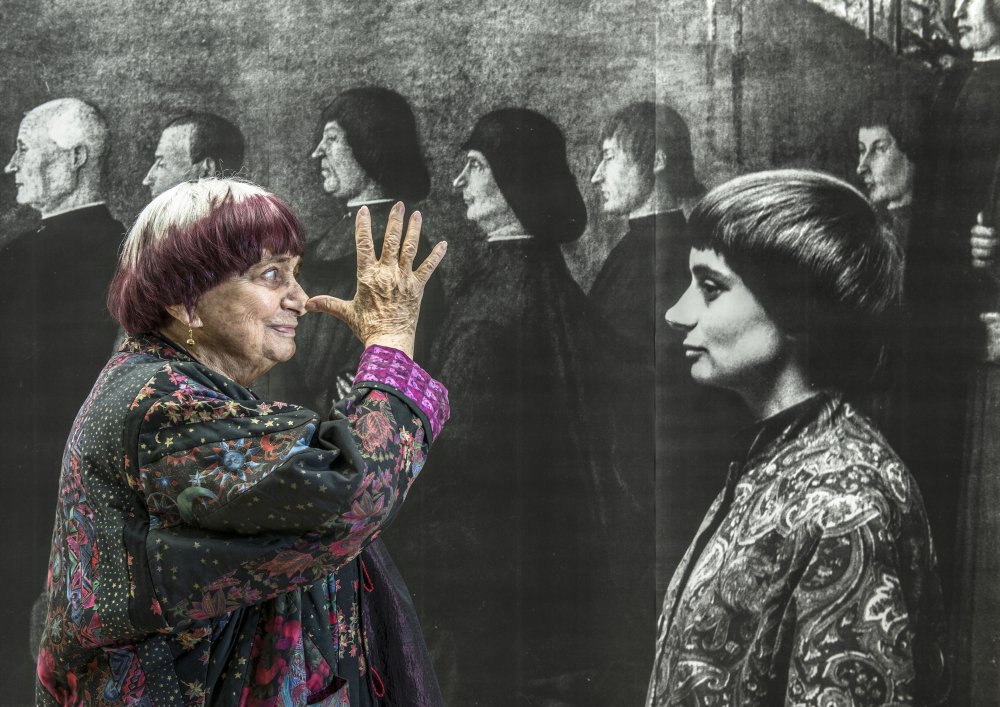The grandmother of French cinema: who is Agnes Varda?
When we think of France, a dozen things come to mind. At the beginning of these are the delicious croissant, the Eiffel Tower with its splendor and of course the cinema. When it comes to French cinema, it is not possible to pass Agnes Varda.

Known as the "grandmother of the French New Wave", Agnés Varda, one of the most creative directors in the history of cinema; was born on May 30, 1928, in Belgium, from an Anatolian immigrant Greek father and a French mother. The director, whose real name is Arlette Varda, lived first in Sete and then in Paris after spending her childhood in Belgium. In addition to directing, Varda has also done screenwriting, acting, and photography; she started his photography career at the Theater National Populairé, where she worked while in Paris.
Agnès Varda (born Arlette Varda; 30 May 1928 – 29 March 2019) was a Belgian-born French film director, screenwriter, photographer, and artist. Her pioneering work was central to the development of the widely influential French New Wave film movement of the 1950s and 1960s. Her films focused on achieving documentary realism, addressing women's issues, and other social commentary, with a distinctive experimental style.
In the same years, she met Jacques Demy, with whom she shared her life, and their marriage lasted until the end of Demy's life. Explaining his motivation in his profession with the words “Inspiration is the reason you make films”; After the death of his beloved wife, she made three films in memory of her: Jacquot de Nantes, Les demoiselles ont eu 25 ans and L'univers de Jacques Demy.
The director, who made 44 films between 1955 and 2017; On March 29, 2019, at the age of 91; passed away by getting lost in the dimness, as in the sentence "I will get lost in the blur and leave you" in his autobiographical film, where she describes the process of making a film.
The New Wave and its “Grandmother”
The New Wave movement, which has a large share in the strong position that French cinema has in the history of cinema; It emerged towards the end of the 1950s and experienced its most productive period between 1958-1962. The movement, of which names such as François Truffaut, Jean-Luc Godard, Agnés Varda, and Eric Rohmer are counted as pioneers, can be considered as a reaction to the classical and monotonous narrative structure of cinema, while at the same time, it is considered the milestone of Modern French Cinema.
The most distinctive feature of the New Wave movement, in which each film has the ability to feature a different art manifesto, is that it sees the director as the most important element of the film. The auteur theory, which argues that works of art belong to their creators, is the source of this movement. Currently avoiding the use of linear time; It has produced films that aim to make the audience more active and react to taboos and the classic narrative style of cinema.
Agnés Varda's 1955 film La Pointe Courte, which brought a new breath to the world of cinema in terms of technique and aesthetics with the New Wave movement, is seen as the pioneer of this movement; It also has the distinction of being Varda's first film. Regarding being accepted as the pioneer of the movement, “They see me as the pioneer of the New Wave. However, I was not even 30 years old at that time and I had watched very few films.” Although Varda's cinema ignited the New Wave movement, limiting it only to this movement leads to an incomplete evaluation of his art.
First Step to Cinema: La Pointe Court
Agnés Varda's first feature film, La Pointe Court, was shot with a small team of five and two actors Varda knew from her acting days; It was filmed in a modest fishing village, by collaborative method. Varda, who went to Alain Resnais in Paris with the bobbins after the filming was over, convinced him to edit the film. The master director Varda said the following about Resnais's introduction to the legendary cinema magazine Cahiers du Cinema in this process:
“I was having a hard time following their speech. It was like I had fallen into the wrong place, I didn't belong there. As a single girl among the boys in Cahiers, I felt small and ignorant.”
Footprints of Feminism in Varda Cinema
Agnés Varda, who played a major role in the rise of French cinema; reacting to the patriarchal language that is dominant in cinema and the normalization of male domination, produced films that reflect the feminist ideology and also bear traces of Second Wave Feminism, which was very popular in those years; In her films, she especially focused on women's life and female lead roles.
